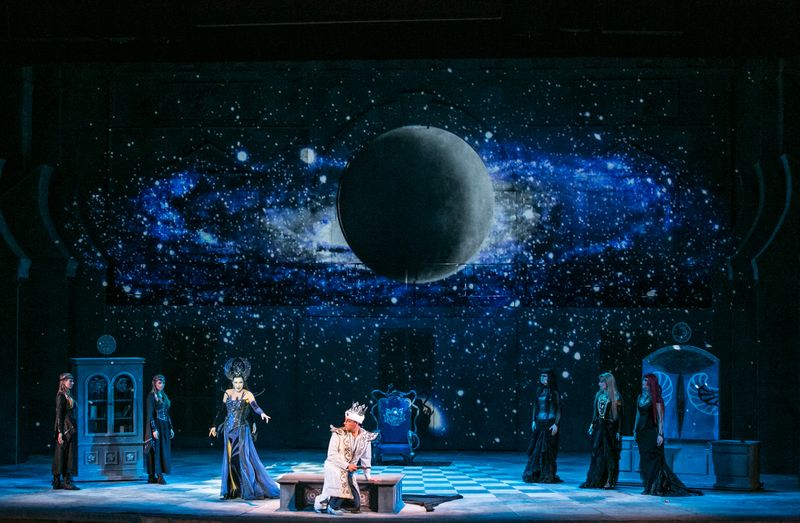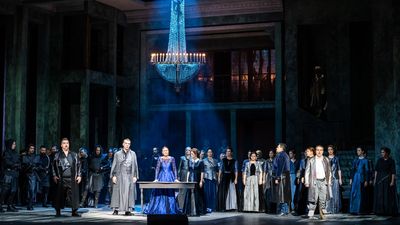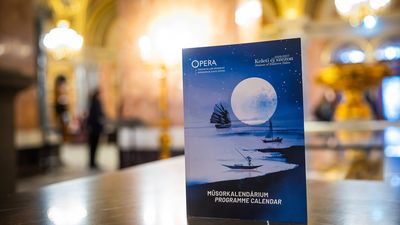
The double cast of Miklós Szinetár’s production features several opera singers making their debut at the Opera House, including Polina Pasztircsák and Zita Szemere as Pamina, Regina Koncz as the Queen of the Night, and conductor Péter Halász. The run of Mozart’s popular Singspiel, taking place from 22 November to 10 December 2025, has been expanded with additional performances on 25 November and 4 December.
Die zauberflöte (The Magic Flute) is a tale of love and coming-of-age which, following its 1791 Vienna premiere, has over more than two centuries become a refined family experience introducing audiences to the world of opera. The journey of Tamino, Pamina and Papageno, full of trials and deceptions, offers multiple layers of interpretation for young and old alike, from a folk-tale imbued with rustic elements to moral didactic drama, masonic initiation rites, and even political allegory, all woven into harmony by Mozart’s beautiful and timeless music.
Miklós Szinetár’s production, faithful to the original work and enriched with spectacular projections, has since its 2014 premiere offered more than 80 opportunities for the artists of the OPERA to grow into their roles; aside from Budapest, the staging also enjoyed great success on a 12-stop tour of Japan. Several female performers in the double cast are now appearing for the first time. Polina Pasztircsák takes on the role of Pamina for the first time, and Zita Szemere also makes her debut, although she has previously gained experience portraying the young girl in the children-oriented production The Little Magic Flute. Making her house debut as the villainous Queen of the Night is Regina Koncz, who, after studies in Szeged and at the Mozarteum in Salzburg, gained experience as a studio member of the Berlin State Opera; she has sung this role, including the famous vengeance aria, on many stages, and this season appears in Stuttgart, Leipzig and Lille. Ildikó Megyimórecz is heard for the first time as the First Lady, Anna Csenge Fürjes as the Third Lady, while Eszter Zemlényi and opera-studio member Anija Lombard make their debut as Papagena. Among the male soloists, Attila Erdős debuts in Budapest as a new Monostatos, while István Kovács and András Palerdi, both portraying Sarastro, also take on the roles of the Old Priest and the Second Guard. Alongside the debutants, returning to their well-known roles are István Horváth and Tibor Szappanos as Tamino, Csaba Sándor as Papageno, Tetiana Zhuravel as Queen of the Night, Péter Fried as Sarastro, Zsófia Kálnay as Second Lady, and Gergely Ujvári as Young Priest,and First Guard.
Responsible for the musical direction of the Hungarian State Opera Orchestra and its 48-member Chorus (chorus director: Gábor Csiki) for the first time is first guest conductor Péter Halász, who has previously conducted the work at Deutsche Oper am Rhein in Düsseldorf, as well as Sámuel Csaba Tóth.
Die Zauberflöte is performed twice to sold-out houses on 22 November, and can be seen at the Hungarian State Opera on 25, 26, and 27 November, and on 3, 4, and 10 December.
Photo by Szilvia Csibi


